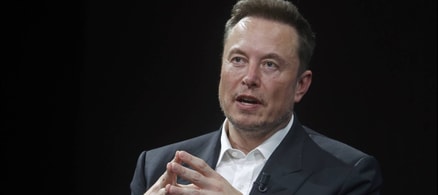Not all EVs are the same
In terms of reliability, not all EVs are created equally. And what appears to matter is less how they were created and more when. Consider that EV manufacturer Rivian, which is number 28 on Consumer Reports’ ranking of 30 car brands for reliability, only shipped its first vehicles in October 2021.
And then compared that with Tesla, which ranks 14th on the list. Although a number of the brands higher on the list include hybrid cars, Tesla, which was founded 20 years ago and has been shipping vehicles to consumers for more than a decade, was the top EV manufacturer.
And Tesla’s Model Y and Model 3 vehicles have earned Consumer Reports’ recommended status.
Meet Your Retirement Goals Effortlessly
The road to retirement may seem long, but with WiserAdvisor, you can find a trusted partner to guide you every step of the way
WiserAdvisor matches you with vetted financial advisors that offer personalized advice to help you to make the right choices, invest wisely, and secure the retirement you've always dreamed of. Start planning early, and get your retirement mapped out today.
Get StartedEVs cost more to repair — but this may be temporary
But what about costs? Citing a 2021 study of the service and repair of 19 million vehicles by We Predict (now part of J.D. Power), Kelley Blue Book reports that “while EVs cost less in maintenance because they have fewer regular maintenance procedures, they cost more to repair than their gasoline equivalents.”
According to the report, EVs were 2.3 times more expensive to service than gas cars during the first three months of ownership and 1.6 times more expensive at the one-year mark.
But, according to Kelley Blue Book, the primary driver of this extra expense is labor. There’s currently a shortage of mechanics who are certified to service EVs, so those with certification remain in high demand — and more expensive. It also takes them 1.5 times longer to work on EVs than gas-powered cars, since problems take longer to diagnose and repair.
More recently, Mitchell, a claims management and technology solutions provider for the automotive repair and P&C industry, reported that in the third quarter of the year, labor as a percentage of repair cost was 49.66% for EVs compared to 41% for gas-powered vehicles. But this is seen as a short-term problem. As EVs grow in popularity, the number of qualified technicians is expected to increase.
Repairs from collisions are also more expensive. According to Mitchell, repair costs for EVs continue to trend higher than those for gas-powered cars. In the third quarter of 2023, for example, it cost $950 more to repair an EV than a gas-powered vehicle.
The future looks bright
Of course, this may not matter to most EV buyers. According to a 2023 global survey by EY, EV buyers are primarily motivated by high fuel prices, environmental concerns and penalties on gas-powered cars. Only 22% reported being concerned about running costs.
It remains to be seen if electric cars will become more reliable and less expensive to repair relative to gas-powered cars. But manufacturers are likely to work through the bugs in their vehicles, while labor costs could come down as more technicians are trained and certified.
And, since reliability isn’t a primary motivator for EV purchasers, the future is likely still bright for EVs.
Sponsored
This 2 Minute Move Could Knock $500/Year off Your Car Insurance in 2023
Thanks to Everquote you can compare your car insurance at no extra cost to ensure you're getting the best rate. See how much you can save with Everquote today.






